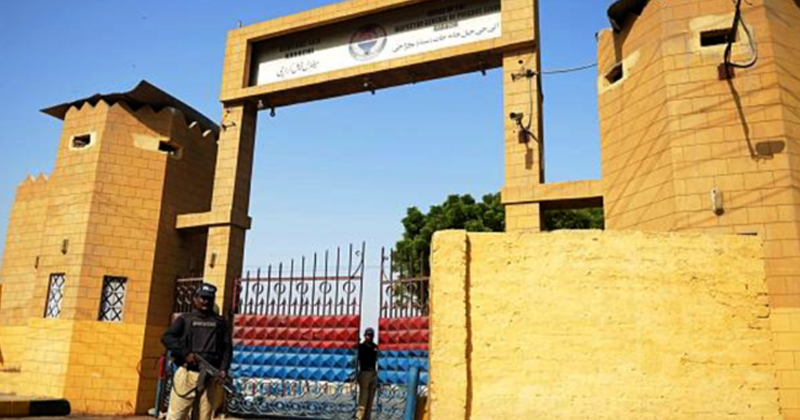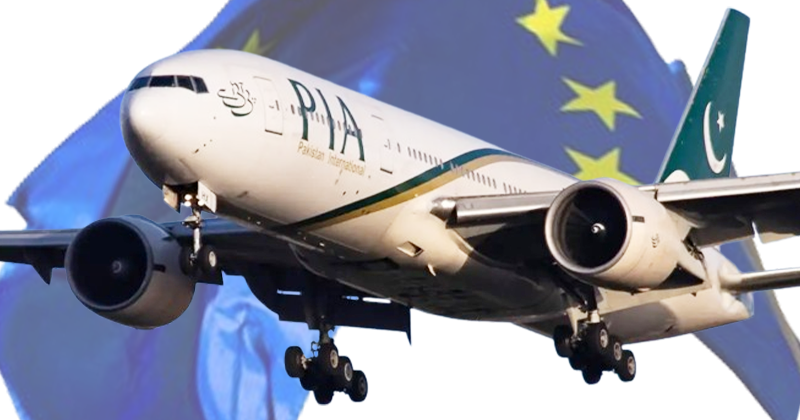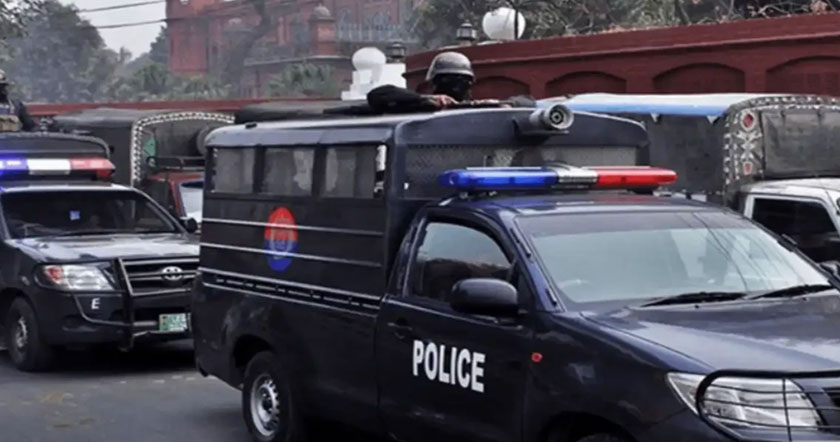Last week US President Barack Obama announced a timetable for withdrawal of 30 000 in Afghanistan.
This doctrine has three key characteristics. These three qualities have characterised this presidency and are, in part, why some of those who lauded his arrival in the White House are more than a little disappointed.
Firstly, the unashamed pursuit of American interests around the world, as hegemonic as any of his predecessors. Those who had hope in Obama expected something less destructive and unjust than the ruthless pursuit of American interest so, the escalation of the 'war on terror' in Pakistan and Yemen, including the use of extrajudicial assassinations, has shattered their illusions.
Secondly, which distinguishes him from his immediate predecessor, is that he has a far greater awareness of America's strengths and weakness and hence its capacity to act around the world. Many of his supporters around the world had hoped for a substantial change of policy in the Muslim world, not merely a change in tone and tactics brought about by two military defeats, an economic collapse and the obstacle of anti-American public opinion.
Thirdly, is this regime's exceptional ability to spin the situation in order to make the best political capital. People in their nave optimism did not expect that serious decisions on war and peace would be made so cynically, according to the timetable of a presidential election.
spinning a bad situation
What the White House under Obama lacks in terms of principle, it has surely made up for in terms of the ability to portray a false image and exploit matters for political ends.
Whether Obama's Cairo speech that promised so much, and delivered so little; or much vaunted the promise to close Guantanamo Bay that has gone unfulfilled till today; or whether it is the statement that America is with the people in the Arab uprisings, made after support for Hosni Mubarak till the eleventh hour, and support for Syria's Assad and Bahrain's royal family well beyond that. All of these illustrate a massive gap between rhetoric and substance.
When Obama announced a drawdown of 30 000 troops from Afghanistan, somehow the message came across that the US was withdrawing. It is not. It will still retain 68 000 troops in the region. It is merely withdrawing those used in the 'surge'. However, the timing of the withdrawal coincides very favourably with next year's presidential debates. It plays very well with American voters, which most polls suggest significant numbers favour withdrawal of US troop ranging from 54% [The New York Times / CBS News poll was conducted Feb 2011] to 72% [USA Today / Gallup Jan 2011].
....................
Beyond the liberal world order
All of this could appear extremely bleak for the people of Pakistan. Indeed, if the policies continue thus, unchanged, the future is bleak.
Yet, there is one way out and it is via the route that every signpost erected by the West and its allies in the region is saying not to go near.
That is the Islamic route.
In his speech in Westminster Hall, Barack Obama acknowledged that emerging economies were fast gaining ground on the United States, and would want more of a say in a world currently dominated by America and Europe. But he made one thing very clear. Even if America is in decline, or if the European project is collapsing, the world order has been made in the image of the West.
The nation state is the accepted model for all countries. The United Nations Security Council decides the law for most of the world [except for its permanent members]. The global capitalist economy is the route by which China, India, Turkey, Russia and Brazil have grown in wealth.
Any new emerging power, however, distant they are from America in terms of a political challenger [which is a very different thing from having economic growth], must develop and grow according to the rules set by America and Europe.
This means that one day, the world looks more to the Lakshmi Mittal's and Oleg Deripaska's, than it does to the Warren Buffet's and Bill Gates's for an example of success. It means Muslim countries can improve their lot for their wealthy and elites, like India, Russia and China have done and hope that some trickles down to the ordinary citizens. It means that some states states that have large populations, growing economies and political muscle will compete over smaller, divided, failing regions in Asia and Africa.
America sees China as a rival, but not yet a threat. China has the largest growing economy of the world but it is the largest direct investor in the US and as such is helping to support a weakening US economy. It holds over 2 trillion dollars of foreign exchange, and could theoretically cause the US economy to collapse overnight. But its relationship with America as one of provider and purchaser, as well as debtor and indebted -means that it would be shooting itself in the foot if it did so.
But if, as is feared a powerful Islamic state emerged, it would offer a system that sits outside this cosy, liberal, capitalist order. That is its real power.
It would offer an economy that was built on real commodities and not virtual currency. It would offer a market in trade, with clear rules so that within that framework free trade could emerge but would prohibit the speculative and casino markets that have caused so much instability. Islamic law would force it to use energy and material resources for its citizens, clashing with the interests of Western energy giants and others. Moreover, it would work to end a foreign military presence in the region.
It is for these reasons the Islamic system is the one they all want to stop emerging. It has little to do with terrorism, extremism etc. but is about controlling what they can, for their interests.
There are those in America who feel they are fighting for religious reasons. But this is not the reason that Friedman says America wants to 'to prevent a large, powerful Islamic state from emerging'. It is also not the reason that Bush launched the 'war on terror'; and it is not the reason why Obama's focus is on Pakistan.
Strangely enough, viewed from this perspective, it is the people of Pakistan and the Muslim world who have the upper hand, if only they realised it, and seized the opportunity for a real change.
http://http://www.khilafah.com/index.php/analysis/asia/12157-the-obama-doctrine-pakistan-and-the-qdrawdownq-from-afghanistan
This doctrine has three key characteristics. These three qualities have characterised this presidency and are, in part, why some of those who lauded his arrival in the White House are more than a little disappointed.
Firstly, the unashamed pursuit of American interests around the world, as hegemonic as any of his predecessors. Those who had hope in Obama expected something less destructive and unjust than the ruthless pursuit of American interest so, the escalation of the 'war on terror' in Pakistan and Yemen, including the use of extrajudicial assassinations, has shattered their illusions.
Secondly, which distinguishes him from his immediate predecessor, is that he has a far greater awareness of America's strengths and weakness and hence its capacity to act around the world. Many of his supporters around the world had hoped for a substantial change of policy in the Muslim world, not merely a change in tone and tactics brought about by two military defeats, an economic collapse and the obstacle of anti-American public opinion.
Thirdly, is this regime's exceptional ability to spin the situation in order to make the best political capital. People in their nave optimism did not expect that serious decisions on war and peace would be made so cynically, according to the timetable of a presidential election.
spinning a bad situation
What the White House under Obama lacks in terms of principle, it has surely made up for in terms of the ability to portray a false image and exploit matters for political ends.
Whether Obama's Cairo speech that promised so much, and delivered so little; or much vaunted the promise to close Guantanamo Bay that has gone unfulfilled till today; or whether it is the statement that America is with the people in the Arab uprisings, made after support for Hosni Mubarak till the eleventh hour, and support for Syria's Assad and Bahrain's royal family well beyond that. All of these illustrate a massive gap between rhetoric and substance.
When Obama announced a drawdown of 30 000 troops from Afghanistan, somehow the message came across that the US was withdrawing. It is not. It will still retain 68 000 troops in the region. It is merely withdrawing those used in the 'surge'. However, the timing of the withdrawal coincides very favourably with next year's presidential debates. It plays very well with American voters, which most polls suggest significant numbers favour withdrawal of US troop ranging from 54% [The New York Times / CBS News poll was conducted Feb 2011] to 72% [USA Today / Gallup Jan 2011].
....................
Beyond the liberal world order
All of this could appear extremely bleak for the people of Pakistan. Indeed, if the policies continue thus, unchanged, the future is bleak.
Yet, there is one way out and it is via the route that every signpost erected by the West and its allies in the region is saying not to go near.
That is the Islamic route.
In his speech in Westminster Hall, Barack Obama acknowledged that emerging economies were fast gaining ground on the United States, and would want more of a say in a world currently dominated by America and Europe. But he made one thing very clear. Even if America is in decline, or if the European project is collapsing, the world order has been made in the image of the West.
The nation state is the accepted model for all countries. The United Nations Security Council decides the law for most of the world [except for its permanent members]. The global capitalist economy is the route by which China, India, Turkey, Russia and Brazil have grown in wealth.
Any new emerging power, however, distant they are from America in terms of a political challenger [which is a very different thing from having economic growth], must develop and grow according to the rules set by America and Europe.
This means that one day, the world looks more to the Lakshmi Mittal's and Oleg Deripaska's, than it does to the Warren Buffet's and Bill Gates's for an example of success. It means Muslim countries can improve their lot for their wealthy and elites, like India, Russia and China have done and hope that some trickles down to the ordinary citizens. It means that some states states that have large populations, growing economies and political muscle will compete over smaller, divided, failing regions in Asia and Africa.
America sees China as a rival, but not yet a threat. China has the largest growing economy of the world but it is the largest direct investor in the US and as such is helping to support a weakening US economy. It holds over 2 trillion dollars of foreign exchange, and could theoretically cause the US economy to collapse overnight. But its relationship with America as one of provider and purchaser, as well as debtor and indebted -means that it would be shooting itself in the foot if it did so.
But if, as is feared a powerful Islamic state emerged, it would offer a system that sits outside this cosy, liberal, capitalist order. That is its real power.
It would offer an economy that was built on real commodities and not virtual currency. It would offer a market in trade, with clear rules so that within that framework free trade could emerge but would prohibit the speculative and casino markets that have caused so much instability. Islamic law would force it to use energy and material resources for its citizens, clashing with the interests of Western energy giants and others. Moreover, it would work to end a foreign military presence in the region.
It is for these reasons the Islamic system is the one they all want to stop emerging. It has little to do with terrorism, extremism etc. but is about controlling what they can, for their interests.
There are those in America who feel they are fighting for religious reasons. But this is not the reason that Friedman says America wants to 'to prevent a large, powerful Islamic state from emerging'. It is also not the reason that Bush launched the 'war on terror'; and it is not the reason why Obama's focus is on Pakistan.
Strangely enough, viewed from this perspective, it is the people of Pakistan and the Muslim world who have the upper hand, if only they realised it, and seized the opportunity for a real change.
http://http://www.khilafah.com/index.php/analysis/asia/12157-the-obama-doctrine-pakistan-and-the-qdrawdownq-from-afghanistan



































